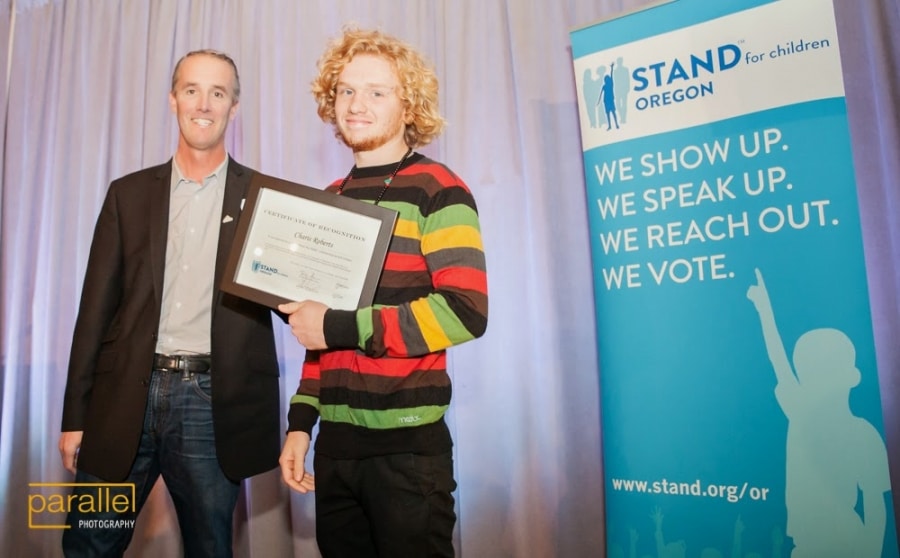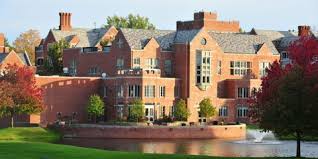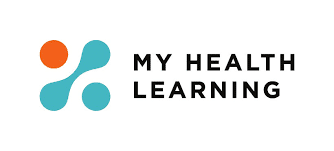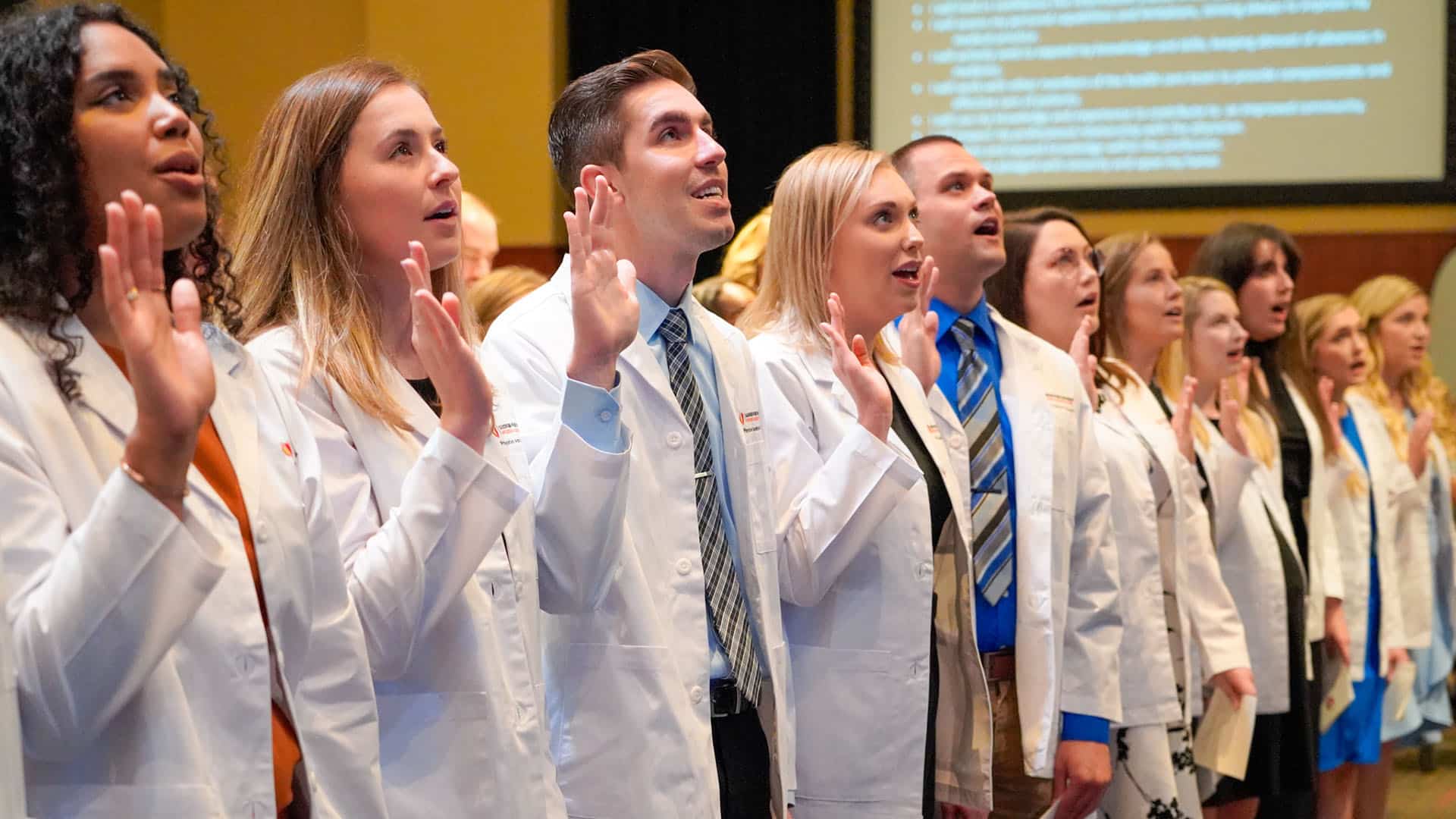No one would want to study in a school that does not have the necessary facilities for their study. I can bet, you will agree with me on that. Hence, it is necessary to find the best colleges to study in New York especially when it has to do with a course like veterinary medicine.
Although there has been this claim that veterinary schools are harder than the medical school, this cannot be debated because there are factors stated below to justify the arguments. But whether or not vet schools in New York are more important than medical schools in United States is irrelevant.
The truth will always remain, like all great careers, veterinary medicine is a challenging field that demands dedication and great commitment.
Indeed, there are top veterinary medicine schools where you can get to broaden your education in New York. This article stands solely to provide all the necessary information you need to know when looking for the best veterinary technician colleges in New York.
However, before we go into listing the schools, I believe it’s important to know what a veterinarian does and probably their job outlook in 2024.
Table of contents
- What is Veterinary Medicine
- What Does A Veterinarian Do?
- How Much Does it Cost to Attend Veterinary School in New York?
- How to Become a Veterinarian in New York
- How Can I Know the Best Veterinary Colleges in New York
- List of 10 Best Veterinary Technician Colleges in New York
- #3. SUNY Westchester Community College
- #4. SUNY Genesee Community College
- #10. CUNY LaGuardia Community College
- Conclusion
- Author’s Recommendation
What is Veterinary Medicine
Just in case you do not know what Veterinary Medicine. This page of this article will give you a detailed overview of what Veterinary Medicine is as well as who is a Veterinarian.
Obviously, whenever you hear the word “veterinary,” you probably think immediately of animals. Indeed you are right about it because veterinary medicine is the branch of medicine that deals with the prevention, diagnosis, and treatment of diseases.
It is also the prevention of diseases in animals of all kinds, from home pets to farm animals as well as zoo animals.
Equally, veterinary medicine is one field of study that is widely in practice, both with or without being a professional. According to Wikipedia, Veterinary science aims to help human health through controlling and monitoring the zoonotic disease. Which are infectious diseases that can be transmitted from animals to humans?
Who is a Veterinarian?
A veterinarian is a health professional who protects the health and welfare of animals and people. They diagnose and control animal diseases and treat sick and injured animals. They also advise owners about the proper maintenance of their pets and their livestock.
According to Wikipedia, defined a Veterinarian as a professional who practices veterinary medicine in order to treat diseases, injuries, and disorders in non-human animals.
What Does A Veterinarian Do?
In many ways, a veterinarian is similar to a pediatrician. Just as you know, animals cannot speak like babies and children. And most of the medical history is obtained from the owner or client, as a pediatrician would do with a child’s parents. For this reason, excellent interpersonal and communication skills are required.
Secondly, Veterinarians also work in the field of public health. They literally help prevent and control animal and human diseases and promote good health.
Then as an epidemiologist, they investigate outbreaks of animal and human diseases such as foodborne diseases, influenza, plague, rabies, AIDS, and encephalitis. Equally, they evaluate the safety of food processing plants, restaurants, and water supplies. Veterinarians in environmental health programs study and evaluate the effects of various pesticides, industrial pollutants, and other pollutants on people and animals.
There are many veterinarians who are teachers and teach in veterinary medical schools and universities in New York. In addition to teaching, faculty members in veterinary schools conduct basic and clinical research. They also contribute to scientific publications and develop continuing education programs to help graduate veterinarians acquire new knowledge and skills.
What you may not know is that veterinary health workers also contribute to human public health by working to combat zoonotic diseases. Which are basically transmitted from nonhuman animals to humans, such as Lyme disease, West Nile virus, etc.
READ ALSO: 10 Best Schools for Food Science in the World
How Much Does it Cost to Attend Veterinary School in New York?
Firstly, veterinary colleges in New York typically vary depending upon whether you choose to attend private or public schools. For example, considering the undergraduate level, the tuition fees vary due to the fact that schools have their respective tuition rates. And also, it depends on how much equipment and facilities each of these schools do have. For that reason, they raise their tuition so high.
Secondly, Veterinary colleges in New York also vary for those who are resident in New York against international students. It is now well known that residents’ students always have lesser tuition to pay than non-residents.
Hence, for those who will choose to be entering veterinary schools in New York come 2024, the estimated total cost of tuition fees including the average living expenses ranges from $148,807 to $407,983 for four years. Also, this cost depends on if you are a resident in New York.
How to Become a Veterinarian in New York
In order to become a Veterinarian, he/she must obtain a doctorate degree. Although this is not mandatory, many students obtain a bachelor’s degree before applying to veterinary school in New York. Biology, zoology, animal science and other related courses can be beneficial for admission to the doctoral school.
You must plan to attend an accredited veterinary school and obtain a doctorate degree in veterinary medicine (D.V.M. or V.M.D.). It usually takes about 4 years and includes class, laboratory and clinical components.
Furthermore, most veterinary programs include math, humanities, and science. But now most schools and colleges in New York are beginning to include general business management and professional development courses so that new veterinary graduates will be able to know how to start up a business after graduation.
All states require a license to practice. This does not leave New York as an exemption. Applicants must pass an American veterinary license (NAVLE) exam to obtain certification before they can start practicing.
How Can I Know the Best Veterinary Colleges in New York
There are a good number of veterinary colleges in New York, but knowing the best is what really matters. With this purpose in mind, we have made a list of 15 Best Veterinary Colleges in New York. And we will be stating a full detail of our ranking criteria:
Ranking Methodology
In selecting the best Veterinary colleges in New York, we will be considering several factors. They include:
Number of Programs: We consider these as one important criterion for ranking the best schools in New York. Because some of these schools can have a good number of programs they offer which will avail you a lot of options to choose from.
Accreditation: This criterion is very much important because a school can be cheap but yet do not have quality. So, we consider the body of accreditation as well as certification for each of these schools before ranking them. Whether they fall in the category of regional or national accreditation.
Acceptance Rate: This is one aspect that is considered important because of the lower the acceptance rate the better the school.
Graduation & Employment Rate: Here, we consider if these schools have a high tendency of graduating their students. Some can get enrolled but get stuck at the end. Also, we put into consideration whether school graduates are employable by great institutions. These factors are equally very much important.
It will interest you to know that you can even study Veterinary with Scholarships. Check it Out TOP 50 VETERINARY & ANIMAL SCIENCE SCHOLARSHIPS.
List of 10 Best Veterinary Technician Colleges in New York
#1. Cornell University
Acceptance Rate: 14%
Number of Programs: 5
Graduation/Employability Rate: 93%
Accreditation: American Association of Veterinary Laboratory Diagnosticians (AAVLD)
Cornell University is a very big University for New York State and it is home to four contract colleges and schools. The great Cornell University of Veterinary Medicine is actually located in the Finger Lakes. It is now part of the State University of New York.
The College is well known internationally as a top lead in public health, veterinary medicine, and biomedical research.
The college offers both DVM, PhD, Master’s and combined degree programs, as well as a wide range of continuing education in Veterinary Medicine.
Basically, the College Doctor of Veterinary Medicine degree program is four years of study.
Graduates from this school are great Vet doctors in New York City and beyond.
#2. Medaille University
Acceptance Rate: 69%
Number of Programs: 3 (Associate and Bachelor Degree)
Employability Rate: 100%
Accreditation: National Accreditation by the American Veterinary Medical Association (AVMA)
Medaille offers the Associate and Bachelor Degre in Veterinary Technology online or on our Rochester campus as an accelerated evening and weekend program. This program is solely designed to help students reach their educational goals.
With the Medaille College Veterinary Technology Program, you know you will go places.
Not only will you benefit from our low student/faculty ratio, but Medaille’s veterinary technology students work hand in hand with a faculty of veterinarians and active researchers, both in the laboratory and in the field.
The successful completion of the program provides students with the necessary credentials to pass the National Veterinary Technician Exam (VTNE).
In addition, the program meets the educational requirements of the State of New York to obtain a professional license as a veterinary technician.
You Can Also Check Out These 15 Best Veterinary Schools in Florida | 2024
#3. SUNY Westchester Community College
Acceptance Rate: 54%
Number of Programs: 1 (A.A.S)
Employability Rate: 100%
Accreditation: Veterinary Technical Education and Activities (CVTEA) of the American Veterinary Medical Association (AVMA)
The Westchester Community College of the State University of New York offers one veterinary program. Which is the Associate of Applied Science (A.A.S) degree.
Most importantly, the Veterinary Technology program at Westchester Community College is designed to prepare its graduates for the Veterinary Technician National Exam (VTNE).
The employability rate for their graduates is extremely high (100%). Hence you stand a chance of getting employment in animal/veterinary-related fields.
#4. SUNY Genesee Community College
Acceptance Rate: 59%
Number of programs: 3 (A.A, A.S, A.A.S)
Employability Rate: 96%
Accreditation: National Accreditation by the American Veterinary Medical Association (AVMA)
The Genesee Community College in New York offers three Veterinary Technology program. Including, Associate in Arts (A.A.), Associate in Science (A.S.), and Associate in Applied Science (A.A.S.) Degree.
Basically, studying Veterinary Medicine in GCC will save a lot of students and their respective families thousands of dollars because their tuition is extremely cheap.
Also, their very good rate of a student to faculty ratio (small class sizes) will allow students to learn well.
#5. Mercy College
Acceptance Rate: 78%
Number of Programs: 1 (B.S)
Employability Rate: 98%
Accreditation: American Veterinary Medical Association Committee on Veterinary Technician Education and Activities (AVMA CVTEA)
The Bachelor’s degree Veterinary Technology program at Mercy College’s sole aim is to prepare their graduates for the Veterinary Technician National Exam (VTNE).
Also, for the credentialing examination that is only available to those graduates from accredited veterinary technology schools especially in New York.
The employability rate for their graduates is extremely high (100%). Hence you stand a chance of getting employment in animal/veterinary-related fields.
Meanwhile, the graduates of Mercy’s Veterinary Technology Program have constantly been having a 98% passing rate on the VTNE for 20 years and above.
#6. SUNY College of Technology at Canton
Acceptance Rate: 78%
Number of Programs: 3 (A.A.S, B.B.A, B.S )
Employability Rate: 100%
Accreditation: National Accreditation by the American Veterinary Medical Association (AVMA)
SUNY Canton is one of the 20 universities across the country that offers 3 exclusive programs. They include; Veterinary Science Technology (A.A.S), Veterinary Service Administration (B.B.A), Veterinary Technology (B.S).
Above all, students who choose to study this program will be eligible for the National Veterinary Technology Exam and will become Licensed Technicians, as well as the professional flexibility offered by a bachelor’s degree.
The SUNY Canton Veterinary Technology Program’s sole aim is to train quality graduates who can begin working immediately in the field of health.
According to the Bureau of Labor Statistics of the US Department of Labor, graduate careers are expected to grow by almost 40% in the next decade.
#7. SUNY Ulster County Community College
Acceptance Rate: 73%
Number of Programs: 1 (A.A.S)
Employability Rate: 95%
Accreditation: National Accreditation by the American Veterinary Medical Association (AVMA)
The SUNY Ulster County Community College offers one veterinary program, which is the Associate in Applied Science (A.A.S) degree program.
Most importantly, the Veterinary Technology program at SUNY Ulster County Community College is designed to prepare its graduates for the Veterinary Technician National Exam (VTNE). The employability rate for their graduates is extremely high (95%).
Hence you stand a chance of getting employment in animal/veterinary-related fields.
#8. Jefferson Community College
Acceptance Rate: 64%
Number of Programs: 1 (A.A.S degree program)
Employability Rate: 96%
Accreditation: National Accreditation by the American Veterinary Medical Association (AVMA)
The Jefferson Community College offers one veterinary program, which is the Associate in Applied Science (A.A.S) degree program.
Most importantly, the Veterinary Technology program at SUNY Ulster County Community College is designed to prepare its graduates for the Veterinary Technician National Exam (VTNE).
Hence you stand a chance of getting employment in animal/veterinary-related fields.
The Jefferson College Veterinary Technology Program is fully accredited by the American Association of Veterinary Medicine (AVMA).
Acceptance to the program is competitive. But the employability rate for their graduates is extremely high (96%).
#9. Suffolk County Community College
Acceptance Rate: 56%
Number of Programs: 1 (A.A.S)
Employability Rate: 95%
Accreditation: National Accreditation by the American Veterinary Medical Association (AVMA)
The Suffolk County Community College offers one veterinary program, which is the Associate in Applied Science (A.A.S) degree program.
Most importantly, the Veterinary Technology program at Suffolk County Community College is designed to prepare its graduates for the Veterinary Technician National Exam (VTNE).
The employability rate for their graduates is extremely high (95%). Hence you stand a chance of getting employment in animal/veterinary-related fields.
#10. CUNY LaGuardia Community College
Acceptance Rate: 56%
Number of Programs: 1 (A.A.S)
Employability Rate: 100%
Accreditation: National Accreditation by the American Veterinary Medical Association (AVMA)
As one of the fully accredited veterinary technology program in New York, LaGuardia Community College is committed to providing educational programs that combine classroom learning with work experience.
This philosophy is the ideal setting for the Veterinary Technology Program (Vet Tech). Vet Tech graduates receive an Associate Degree in Applied Science (AAS).
The Vet Tech program is accredited by the American Association of Veterinary Medicine. Graduates of the program are eligible to write the National Veterinary Technician Exam (VTNE) to receive their New York State License and use the Licensed Veterinary Technician (LVT) designation.
Conclusion
Although, there has been this claim that veterinary technician colleges in New York are harder than the medical school in New York. This cannot be debated because there are factors stated below to justify the arguments.
But whether or not vet schools in New York are more important than medical schools in New York is irrelevant. The truth will always remain, like all great careers, veterinary medicine is a challenging field that demands dedication and great commitment.
In addition, New York and many other states solely require that every student who wants to get employment as a Veterinary Technician has to gain a license. This means that you must get graduate from an AVMA accredited program and pass the Veterinary Technician National Exam (VTNE).
For this reason, we have made a full list of the Best Veterinary Technician Colleges in New York.
- 15 Best College Movies That Prepare You For Campus Life
- 15 Best Veterinary Schools in Florida | 2024
- 13 Best dental schools in North Carolina NC | 2024
- 15 Best Film schools in Texas 2024
- 13 Best Automotive Engineering Schools In The world
- Best Physical Therapy Schools in the World
- 15 Best Interior Design Schools in the World
- 15 Best Business Schools in Florida 2024





